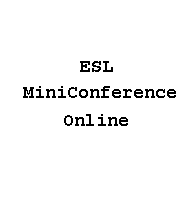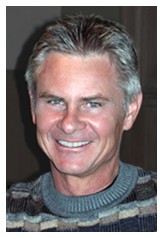
September 2003
Achievement Profile: David Nunan
Jo Gusman on Raising Literacy Skills in Elementary ESL
Multiple Perspectives on Plagiarism?
Grandma's Tortillas: Book Review
![]()
/ Index /
/ Letters /
/ Search /
![]()
Subscribe
for free!
Achievement Profile: David Nunan
Setting the Standard for ESL Professionalism
David Nunan has published over 100 books and articles in the areas of curriculum and materials development, classroom-based research and discourse analysis. He served as President of International TESOL from 1999 to 2000. His efforts have raised the level of consciousness among many ESL/EFL professionals regarding how to determine the effectiveness of classroom activities and how to make discussions of teaching more realistic and more constructive. Professor Nunan delivered an unforgettable and powerfully inspirational keynote speech about teacher autonomy at the 1990 annual convention of JALT (Japanese Association of Language Teachers) at Omiya, Japan, when he was working at Macquarie University, Sydney, Australia. The ESL MiniConference Online is honored to share the following comments from David Nunan with our readers.
Some David Nunan links:
David Nunan's Home Page (www.nunan.info)
PowerPoint Presentations by David Nunan (www.nunan.info/presentations.htm)
English Centre, Hong Kong University (ec.hku.hk)
The Self-Directed Teacher
(Cambridge, 1996)
Go For It! Series ( (Heinle & Heinle / Thomson Learning)
International TESOL (www.tesol.org)
Master of Science in TESOL(Anaheim University Online)
GlobalEnglish Corporation(corp.globalenglish.com)
An ESL MiniConference Online interview
with David Nunan:

What is your main ESL activity now? What are your principal projects, and what is on the back burner?
I wear several 'hats' at present. At Hong Kong U., as Chair Professor of Applied Linguistics, I run Doctoral and Masters programs in TESOL and as Director of the English Centre, I develop, teach and evaluate EAP and ESP programs. As Dean of Education at Anaheim University (formerly Newport Asia Pacific University) I run a Master of Science program in TESOL - this is a virtual program that this largely web-based. I am also Senior Academic Advisor to GlobalEnglish Corporation, a company that runs English language training programs through the Internet. Current projects include writing the second edition of my Middle School series Go For It and carrying out an R and D project into Task-based Assessment for the Hong Kong Education Department. On the back burner is the Great Australian Novel!
How did you start your ESL career? Who influenced your decision? What were some important formative experiences in the early stages of your development?
I started my ESL carrer by 'default'. Having graduated as a teacher of English to native speakers, I was sent to an inner city high school in Sydney in which none of the kids spoke English. Subsequently, I moved around a lot, principally in Asia and Europe, and experienced a wide diversity of EFL / ESL teaching situations and contexts.
What are the four or five language/culture backgrounds with which you are most familiar as a teacher? Which ones are you familiar with from the perspective of a language learner yourself? What insights have you gained in how to meet the needs of English learners from these cultures and language backgrounds?
Having taught, done research, and worked as a consultant in Thailand, Singapore, Japan, and Hong Kong, I am most familiar with Asian contexts, although I have also spent quite a lot of time in Latin America - mainly Mexico and Brazil. As a learner I have studied Thai and Cantonese. My language learning experiences have taught me the importance of affective factors in language learning, the role of the teacher in either motivating or crushing the learner, and the importance of developing a flexible range of learning strategies.
If you had to give three pieces of advice to a new ESL teacher, what would they be?
My advice to a new teacher would be find an experienced mentor to give advice, and if possible observe your teaching and give feedback, seek out several good textbooks and other resources that seem to fit with your own teaching style as well as the needs of the learners, and take control of your own professional development. Finding out as much as you can about your learners and working hard to relate to them as individuals also pays big dividends.
What do you see as the most important issue facing the ESL/EFL teaching profession today?
The most important issue facing the ESL/EFL profession is the "deprofessionalization" of what we do. Individuals who see English as a commodity to be exploited for their own personal gain, who set up schools largely to rip off students, education departments and governments unwilling to put resources into ELT in the form of appropriate training, curricula and materials etc. and bringing our profession into disrepute. Ironically, these trends are partly a result in the global explosion in demand for English language teaching.
Interviewed by Robb Scott
2003 ESL MiniConference Online